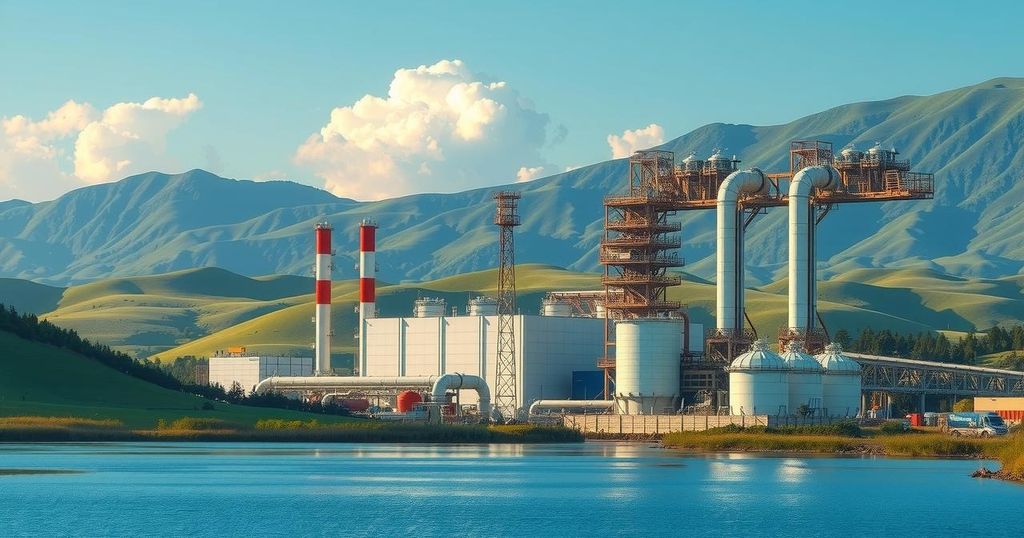Pierre Poilievre promotes Canadian LNG exports, citing potential market opportunities amidst declining global demand and environmental risks. Despite his claims of governmental barriers, expert analysis indicates significant logistical and economic challenges. The transition to renewable energy undermines assertions of LNG’s viability, reflecting a mismatch between political rhetoric and practical realities in energy sourcing.
Pierre Poilievre, leader of Canada’s Conservative Party and a potential future prime minister, is advocating heavily for liquefied natural gas (LNG) despite concerns about economic viability and environmental impact. In discussions with climate change skeptic Jordan Peterson, he criticized Canada for importing oil instead of utilizing its vast natural gas reserves and sought to blame bureaucratic obstacles for hindering LNG exports. However, experts warn of diminishing LNG demand in primary markets like Japan and the pitfalls of pursuing fossil fuel development at this juncture.
Analysts have highlighted significant logistical and economic challenges facing Canadian LNG initiatives. A report from the Institute for Energy Economics and Financial Analysis pointed out how Japan’s LNG imports have been declining, with an expected 25% drop in demand by 2030. Experts also state that while political dialogue persists regarding LNG exports, actual governmental efforts have not materialized, with existing support skewed towards projects in British Columbia rather than a holistic export strategy.
While Poilievre and Peterson contend that various countries, notably Germany and Japan, are eager for Canadian gas, this perception does not align with statements from respective political leaders, who emphasize alternatives like green hydrogen. Trudeau’s administration has pushed back against extensive investments into LNG, expressing concerns surrounding infrastructure and feasibility. Current trends indicate a shift in Europe towards renewable energy, which further undermines claims of growing European demand for LNG.
Furthermore, the belief within Canadian political circles that natural gas might supplant coal use in Asia reflects a misunderstanding of global energy trends. Reports show countries like India and China are primarily transitioning directly to renewables rather than relying on natural gas. Assertions promoting Canadian LNG exports as a solution inadvertently overlook extensive research indicating that fossil fuel extraction and export could burden Canada’s environmental commitments.
Finally, Poilievre’s perspective on energy independence and the potential for Canada to emerge as an LNG superpower faces serious scrutiny. Environmental analysts and data reveal that expanding fossil fuel exports is economically unsound and could lead to dire environmental consequences. As multiple reports point out, without considerable investment and a rethink of energy strategy, Canada’s LNG ambitions remain deeply flawed.
The discussion surrounding Canadian liquefied natural gas (LNG) exports has gained significant traction amidst ongoing debates about energy independence and climate action. As political figures, such as Pierre Poilievre, advocate for LNG expansion, they face challenges from expert analyses indicating declining global demand and environmental implications. The feasibility of these initiatives is further complicated by existing infrastructure limitations and shifting energy policies in key markets, particularly in Europe and Asia, towards renewables.
In summary, Pierre Poilievre’s push for Canadian LNG exports encounters significant barriers, including declining demand in key markets, environmental concerns, and insufficient infrastructure. Despite his rhetoric about potential energy independence, expert opinions consistently warn against the economic viability of further fossil fuel dependency. The transition towards renewable energy solutions highlights the urgency for more sustainable approaches rather than reliance on expanding the fossil fuel sector.
Original Source: www.desmog.com






